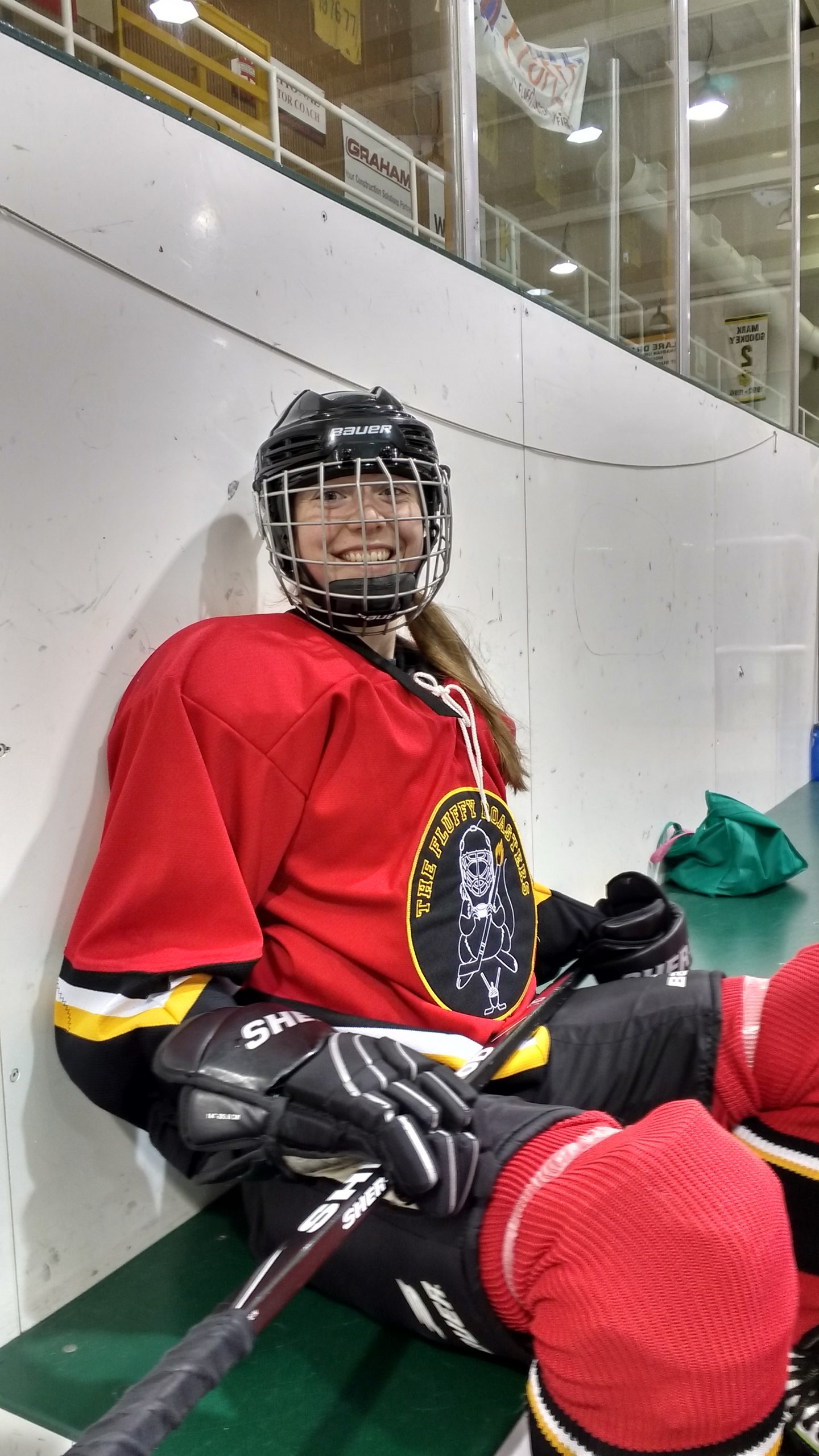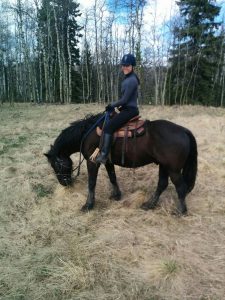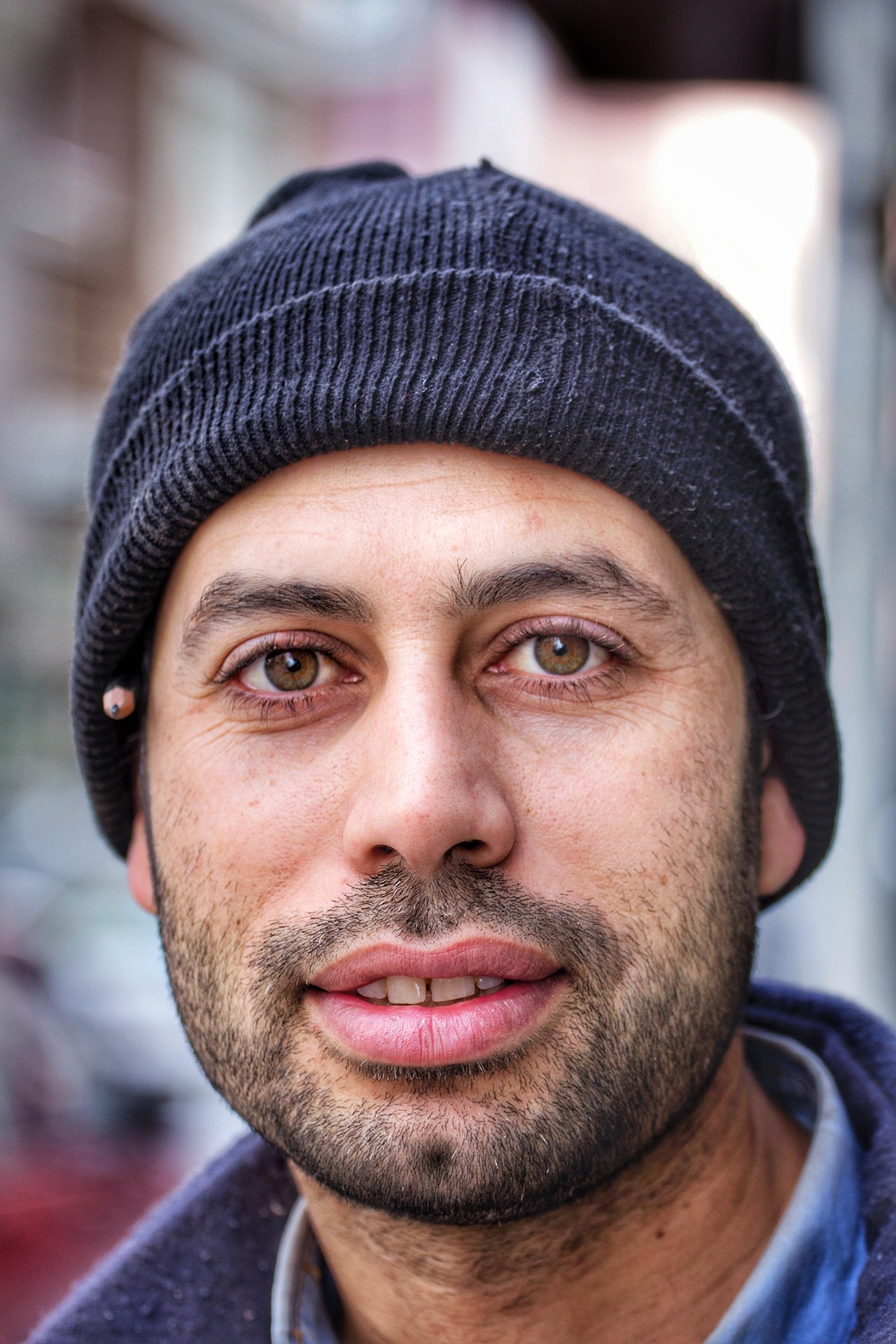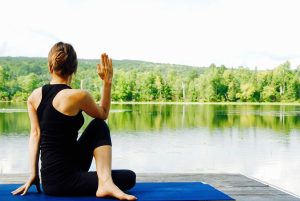Einheit 2.8 (online)
![]() Übung 1. Click the appropriate verb to finish each sentence.
Übung 1. Click the appropriate verb to finish each sentence.
[h5p id=”46″]
![]() In der Freizeit. Read the texts.
In der Freizeit. Read the texts.
 |
[h5p id=”47″] |  |
 |
[h5p id=”48″] |  |
 |
[h5p id=”49″] |  |
![]() Was machen diese Leute gern?
Was machen diese Leute gern?
[h5p id=”50″]
*ACHTUNG* As you have seen in this presentation as well as earlier in this unit, German verbs are sometimes a combination of a noun + verb or verb + verb:
Fußball spielen – Luca spielt gern Fußball.
Musik hören – Karolina hört gern Musik.
Fotos machen – Houssem macht gern Fotos.
ins Konzert gehen – Houssem geht heute Abend ins Konzert.
Sport machen – Sasha macht gern Sport.
essen gehen – Houssem geht mit Freunden essen.
Please note that you conjugate the verb in the second position and put the other verb or noun at the end of your sentence. It is the complement that gives you more information about the verb. You can review word order here.
![]() Grammatik
Grammatik
Conjugation of Verbs (2)
In Einheit 1.8 we first learned about verb conjugation. The verbs we learned in 1.8 had their verb stems plus the ending “-en” (kommen, wohnen, heißen, etc). In the last few lessons you learned a new verbs wandern and klettern. You will notice that these verbs end in “-n” only. Please see the verb conjugation pattern below.
Since 1.8 we have also encountered verbs that don’t follow the typical conjugation pattern for various reasons. Here are few of them:
Verbs whose stem ends in an s-sound (-s, -ß, -z, -ss) do not add an -s in the du-form:
Wie heißt du? – Ich heiße Isabelle.
Tanzt du heute Abend?
Reist du oft nach Deutschland?
Verbs whose stem ends in -t or -d add an -e between the stem and the -st ending for the du-form and between the stem and the -t in the er/sie/es-form and ihr-form:
Du reitest am Donnerstag.
Er arbeitet morgen früh.
Ihr findet den Kurs interessant.
This also applies to some other verbs such as regnen (Es regnet.) and öffnen (Sie öffnet das Buch.).
Compare the following conjugations:
| Pronomen | spielen (regular conjugation) | wandern | tanzen | reisen | reiten |
| ich | spiele | wandere | tanze | reise | reite |
| du | spielst | wanderst | tanzt | reist | reitest |
| er/sie/es | spielt | wandert | tanzt | reist | reitet |
| wir | spielen | wandern | tanzen | reisen | reiten |
| ihr | spielt | wandert | tanzt | reist | reitet |
| sie/Sie | spielen | wandern | tanzen | reisen | reiten |
Please note that the underlined portion of the infinitive is the “verb stem”.
![]() Übung 3
Übung 3
[h5p id=”51″]
![]() Grammatik
Grammatik
Expressing likes and dislikes: “gern”/”nicht gern”/”auch gern”
To express that you like doing something, we use a verb + “gern”:
Helga spielt gern Fußball. – Helga likes to play soccer.
To express that you do not like doing something, we use a verb + “nicht gern”:
Jonas geht nicht gern ins Fitnessstudio. – Jonas doesn’t like to go to the gym.
To agree with a statement of liking or disliking to do something, we use “auch gern“ or “auch nicht gern“:
Helga spielt gern Fußball. – Helga likes to play soccer.
Tom spielt auch gern Fußball. – Tom also likes to play soccer.
Jonas geht nicht gern ins Fitnessstudio. – Jonas doesn’t like to go to the gym.
Max geht auch nicht gern ins Fitnessstudio. – Max also doesn’t like to go to the gym.
Read the sentences above again. Where are the “gern“/”nicht gern“/”auch gern“/”auch nicht gern” placed? They are always after the conjugated verb and before the complement! However, in a sentence with inverted word order, these will come after the subject.
Am Samstag spiele ich gern Fußball. – On Saturday, I like to play soccer.
*ACHTUNG*
“gern” is NOT a verb! You cannot write: “Ich gern Pizza” and think you are saying “I like Pizza”. You always need a conjugated verb to go with the “gern“. There is a verb in German that means “to like”, but we will only learn that in Einheit 4.
![]() Wortschatz in Quizlet:
Wortschatz in Quizlet:
![]() Take Quiz 8 on Canvas.
Take Quiz 8 on Canvas.
Media Attributions
- star
- book
- Sasha reiten
- portrait
- delicious
- holly-mandarich-7MrXw_o7Eo4-unsplash
- yoga
- presentation icon
- light-bulb
- check mark
